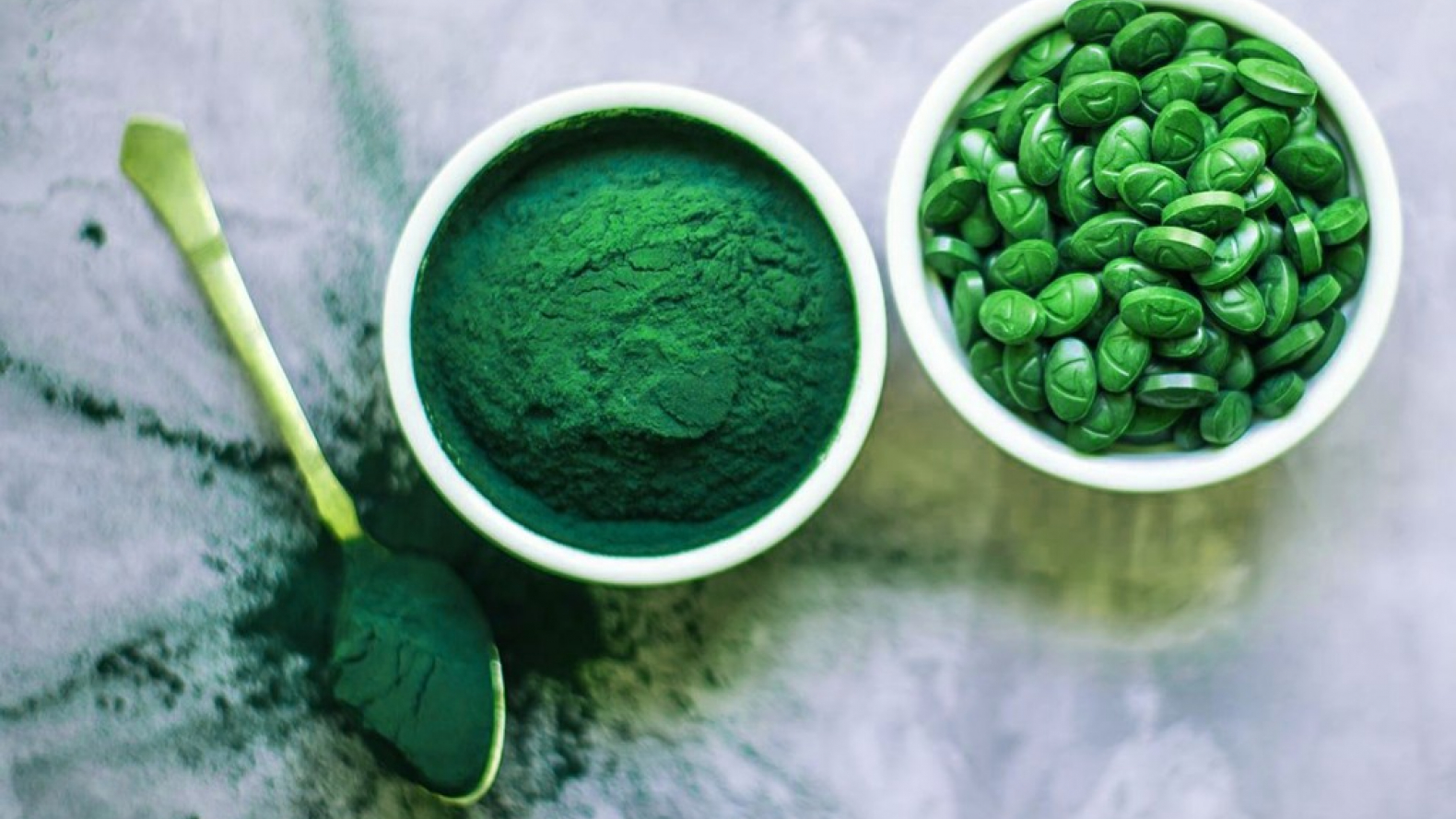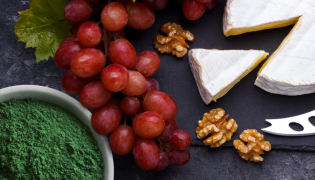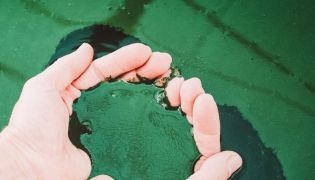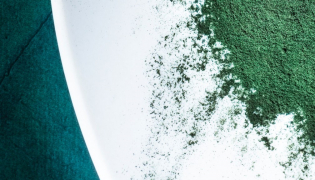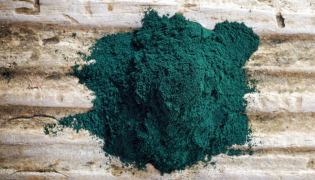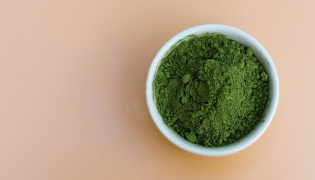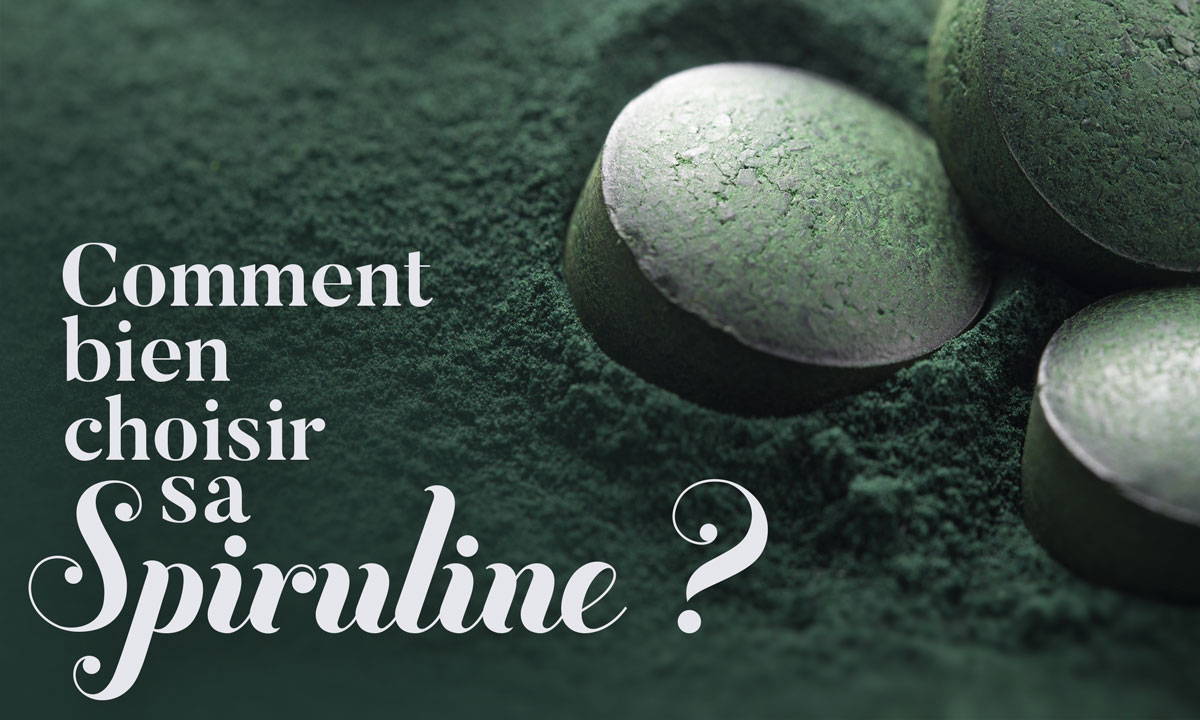
WHAT TO REMEMBER :
- Spirulina is a very rich micro-algae that is similar to a natural multi-vitamin.
- Cleanliness, drying method, micro-nutrient content, organic certification... A few key factors are to be known to make the right choice.
- Nutri&Co Spirulina is selected according to all these factors in order to obtain the best quality at the best price.
What's spirulina ?
A serpentine micro-algae no larger than 0.1 millimetre, which appeared on Earth more than three billion years ago... It was much later that the Aztecs and tribes settled on the shores of Lake Chad had the brilliant idea of integrating it into their culinary heritage. If the conquistadors and other colonizers were indeed intrigued by these local cakes prepared from a strange material, their curiosity hardly went beyond. Rediscovered from the 19th century onwards, spirulina remained shrouded in mystery. Why are the people who consume it spared from malnutrition? In the 1960s, science took a major step forward: analyses revealed an exceptional nutritional profile (1). In 1974, the United Nations World Food Conference presented it (in its original version) as "the best food for the future". Here we go. We are talking about the richest food in the world.
Spirulina in numbers
Ten grams of spirulina gives you as much calcium as a large glass of milk, as much iron as 400 grams of spinach, as much protein as 35 grams of beef, as much beta-carotene as 170 grams of carrots, as much vitamin E as in three spoons of wheat germ, and as much vitamin B12 as 200 grams of mackerel. You might as well know that this seaweed is comparable to no other. Nor to any other food. If spirulina rhymes with protein it is not a coincidence. She's full of it! To be precise, 66% to be precise, of excellent digestibility, and without cholesterol. By way of comparison, a piece of beef will contain only 20% protein, impregnated with cholesterol (90 mg per 100 grams of meat). Spirulina is therefore perfect for vegans, but not only: our favourite micro-algae also contains a unique cocktail of micro-nutrients : antioxidants (2), phytopigments, magnesium, amino acids, essential fatty acids (3), iron, zinc, iodine and lots of vitamins, starting with A, but also E, B1, B2, B3, B6 and ultra-concentrated B12 (4) : 3 grams of spirulina provide 240% of the nutritional reference values. As a bonus, you will even have vitamin K.
Spirulina and its benefits
But where does spirulina get its strength from?
But then, which spirulina to choose ?
The essential question is how to make your choice: you can find it in powder, tablets or capsules, artisanal or industrial, organic or not, and even in trendy cocktails. What about quality, which spirulina to buy? Criterion number one, cleanliness. Because spirulina tends to bind to heavy metals and bacteria, attention to cultivation is therefore the first condition for a good production. Ask for certificates of analysis! Criterion number two, the drying method: the product and its precious nutrients are preserved at low temperatures, below 50 degrees. It is important to know that about two out of three spirulina are dried at high temperatures. Criterion number three for choosing spirulina, the concentration of phycocyanin, the level of which is a good indicator of nutritional quality: 15 % is a minimum. Be wary if the ratio is not indicated by the manufacturer. To these three interdependent points is added the question of organic: does organic spirulina exist? The answer is "yes". Since May 2017, this certification guarantees an ecological culture, without pesticides, synthetic fertilizers or substitutes of animal origin.
What about Nutri&Co spirulina in all this ?
Because it brings out the best in her :
- Cold-processed, dried and compressed at less than 50 degrees.
- 100 % pure, free of colorants, flavours and fillers.
- High phycocyanin content, 15-19%.
- Exceptional production conditions, in the heart of the natural site of Oonaiyur, South India, in the world's first certified organic farm with 35 years of experience.
- Impeccable cleanliness, as proven by the bacteriological and heavy metal analyses available on our site.
- Analyzed and packaged in France.
1. Sguera S., " Spirulina platensis et ses constituants, intérêts nutritionnels et activités thérapeutiques ", Sciences pharmaceutiques, 2008, Henri Poincare -Nancy 1 ; 2008.
2. Kalafati, M., A. Z. Jamurtas, M. G. Nikolaidis, V. Paschalis, A. A. Theodorou, G. K. Sakellariou, Y. Koutedakis, et D. Kouretas, " Ergogenic and antioxidant effects of spirulina supplementation in humans ", Medicine and Science in Sports and Exercise, janvier 2010, pp. 142-151.
3. Goulamabasse T. R., " La spiruline, activités thérapeutiques et son intérêt dans la lutte contre la malnutrition à Madagascar ", Thèse d'État, faculté de pharmacie de Lille, 2018.
4. Karkos P.D. et coll., " Spirulina in Clinical Practice : Evidence-Based Human Applications ", Evidence-Based Complement and Alternative Medecine, 2011, https://www.ncbi.nlm.nih.gov/pmc/articles/PMC3136577/Goulamabasse T. R., consulté le 24 octobre 2019 ; Goulamabasse T. R., op. cit.
5. Romay C. et Gonzales R., " Phycocyanin is an antioxidant protector of human erythrocytes against lysis by peroxyl radicals ", The Journal of pharmacy and pharmacology, avril 2000, pp. 367-368.
6. Hayachi O. et coll. "Enhancement of proliferation and differentiation in bone morow hematopoietic cells by Spirulina (Arthrospira) platensis in mice ", Journal of Applied Phycology, février 2006, pp. 47-56.
7. Lee A. N., et V. P. Werth, " Activation de l'auto-immunité suite à l'utilisation de suppléments immunostimulants à base de plantes ", Archives of Dermatology, juin 2004, pp. 723-727.
8. Romay C et coll. "Further studies on anti-inflammatory activity of phycocyanin in someanimal models of inflammation ", Inflammation Research, 1998, vol. 47, pp. 334-338.
